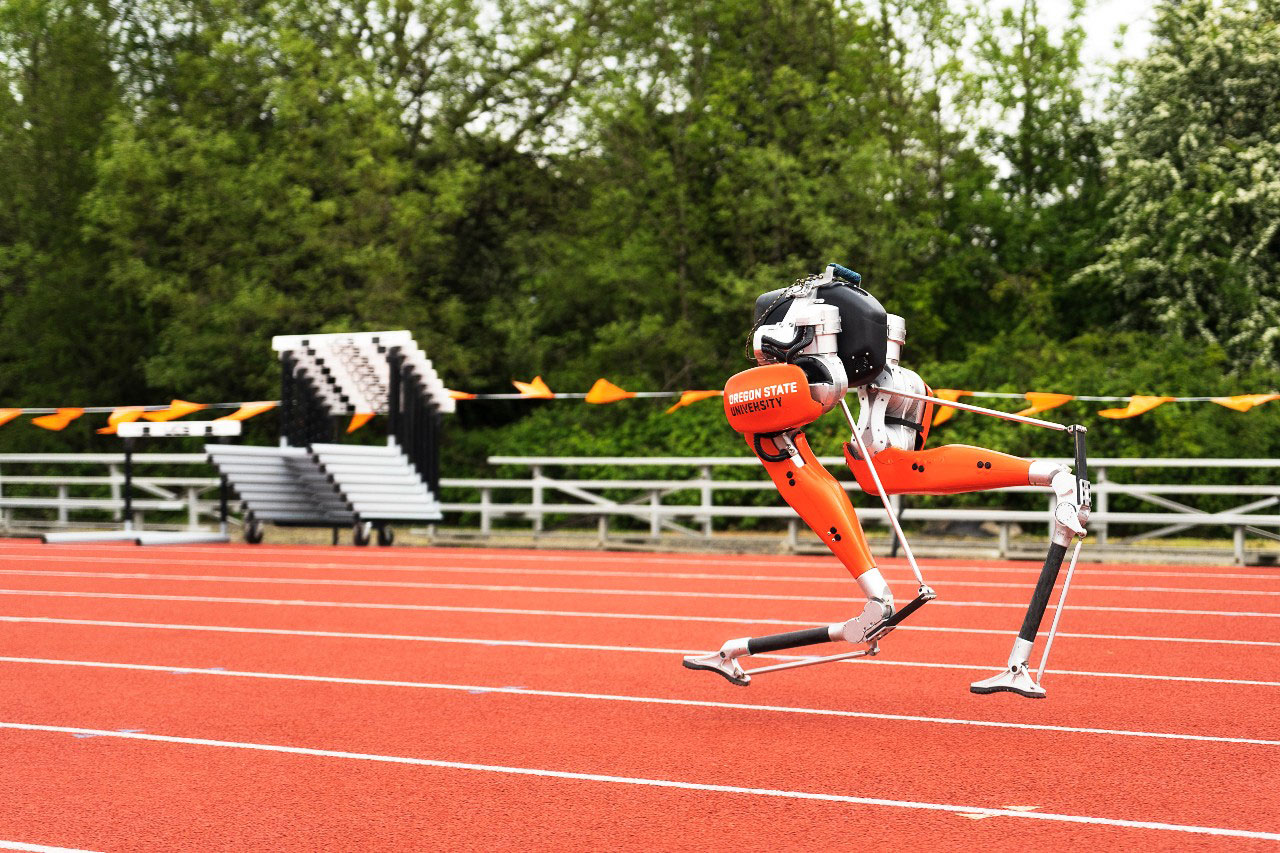
Researchers at the Oregon State University College of Engineering have established a Guinness World Record for the fastest 100 meters by a bipedal robot. Cassie the robot completed 100 meters on the track in the historic time of 24.73 seconds at OSU’s Whyte Track and Field Center. The robot started from a standing position and returned to that position after the sprint, with no falls.
Introduced in 2017, Cassie was produced by Agility Robotics, a spin-off company from Oregon State University. Since then, it has continued to come along in leaps and bounds. In 2021, the robot made history by traversing 5 km (3.1 miles), completing the route in just over 53 minutes. According to the developers, Cassie is the first bipedal robot to use machine learning to control a running giant on outdoor terrain.
The robot has knees that bend like an ostrich’s and operates with no cameras or external sensors, essentially as if blind. Fern’s group uses simulation to train Cassie to walk, sip, and go up and down stairs. The next challenge for the robot is training it to negotiate stepping stones.
“Cassie has been a platform for pioneering research in robot learning for locomotion,” said graduate student Devin Crowley, who led the Guinness effort. “Completing a 5K was about reliability and endurance, which left open the question of, how fast can Cassie run? That led the research team to shift its focus to speed.”
The bipedal robot was trained for the equivalent of a full year in a simulations environment, compressed to a week through a computing technique known as parallelization – multiple processes and calculations happening at the same time. This allows Cassie to go through a range of training experiences simultaneously.
The remaining challenge, a deceptively difficult one, was to get Cassie to reliably start from a free-standing position, run, and then return to the free-standing position without falling.
“Starting and stopping in a standing position is more difficult than the running part, similar to how taking off and landing are harder than actually flying a plane,” said professor Alan Fern. “This 100-meter result was achieved by a deep collaboration between mechanical hardware design and advanced artificial intelligence for the control of that hardware.”
Bipedal robot Cassie achieves Guinness World Record for 100-meter dash
Source: Tambay News

0 Comments